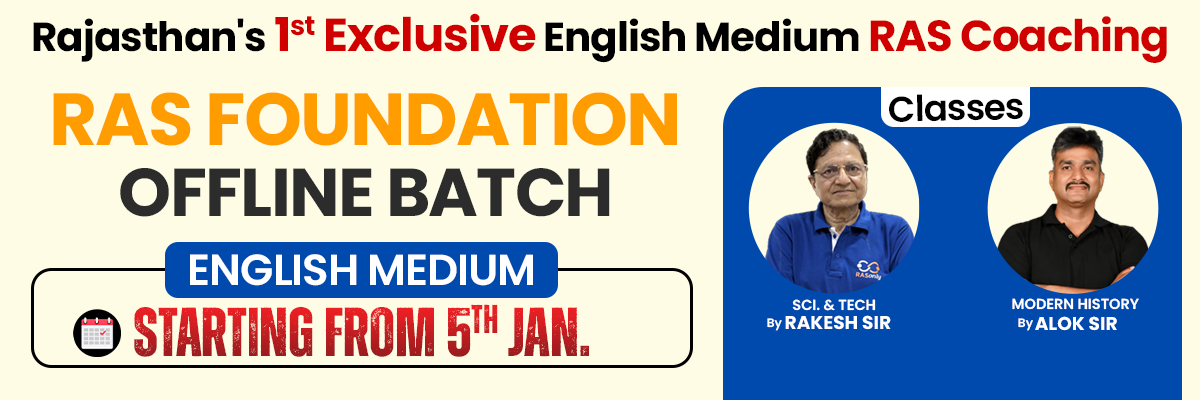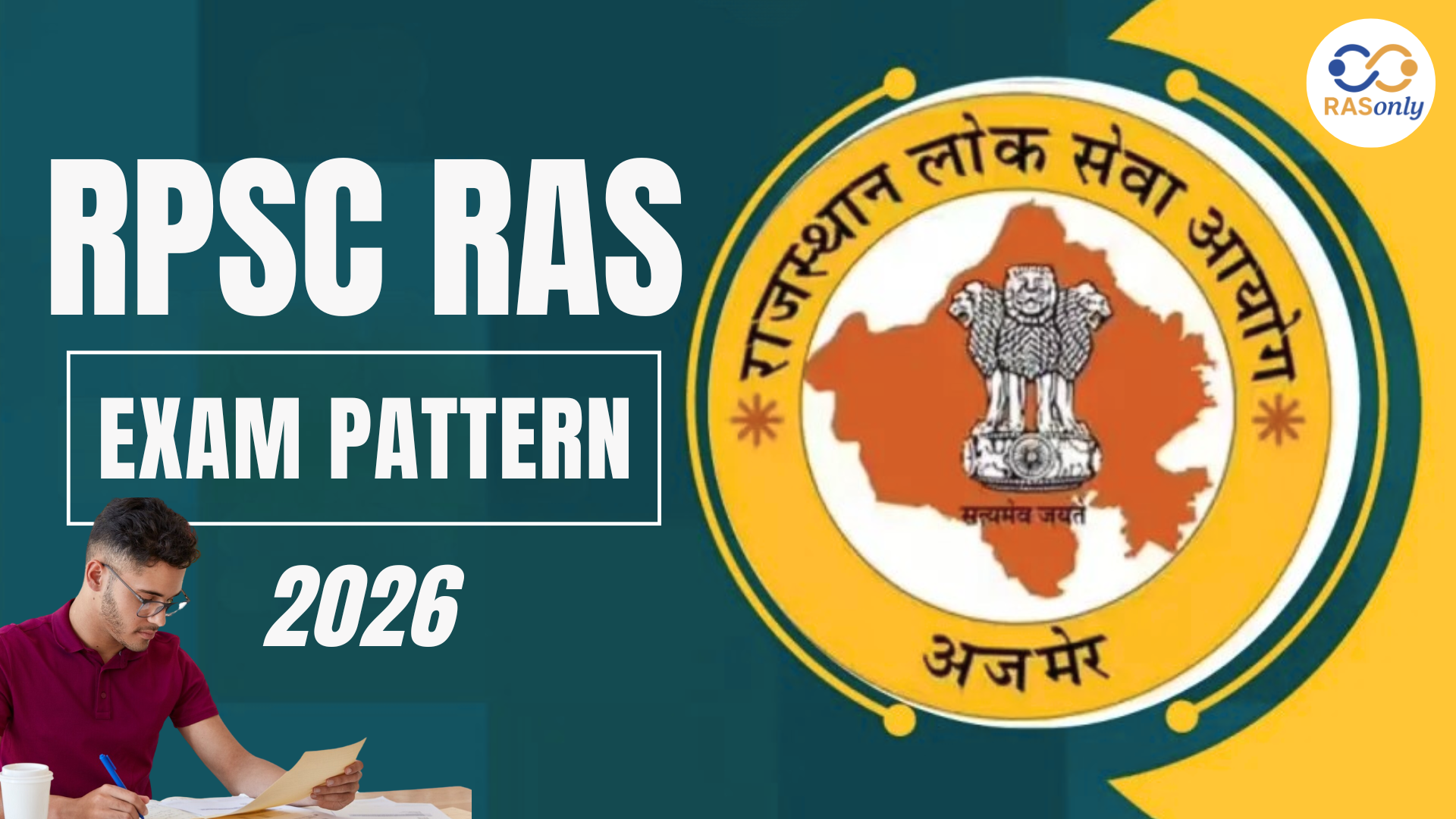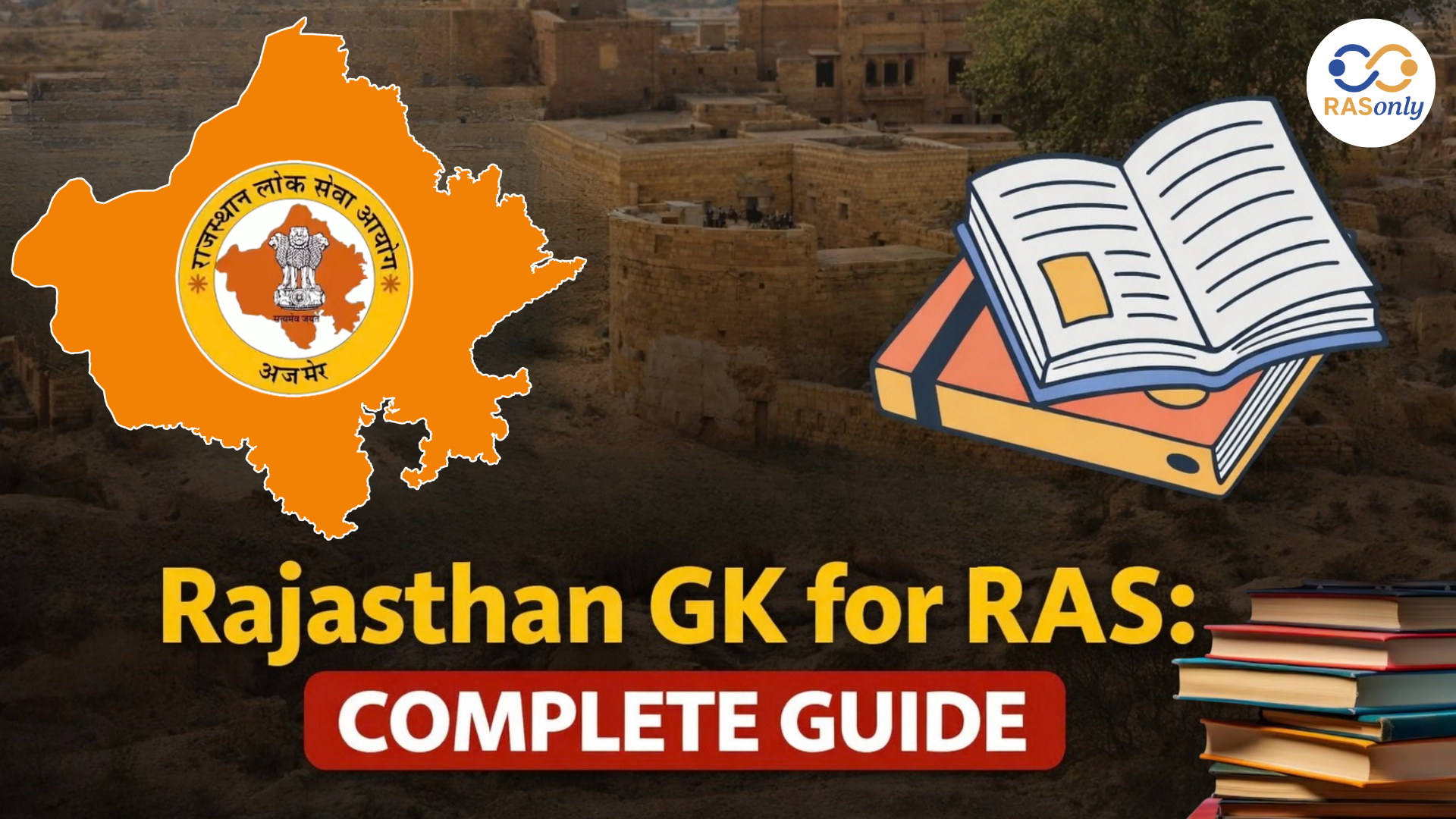RPSC RAS 2026 Subject Wise Exam Pattern for Prelims, Mains & Interview Details
- >
- RAS Preparation Resources
- >
- Dowry in India: A Social Evil
Dowry in India: A Social Evil

Get in Touch with RASonly!

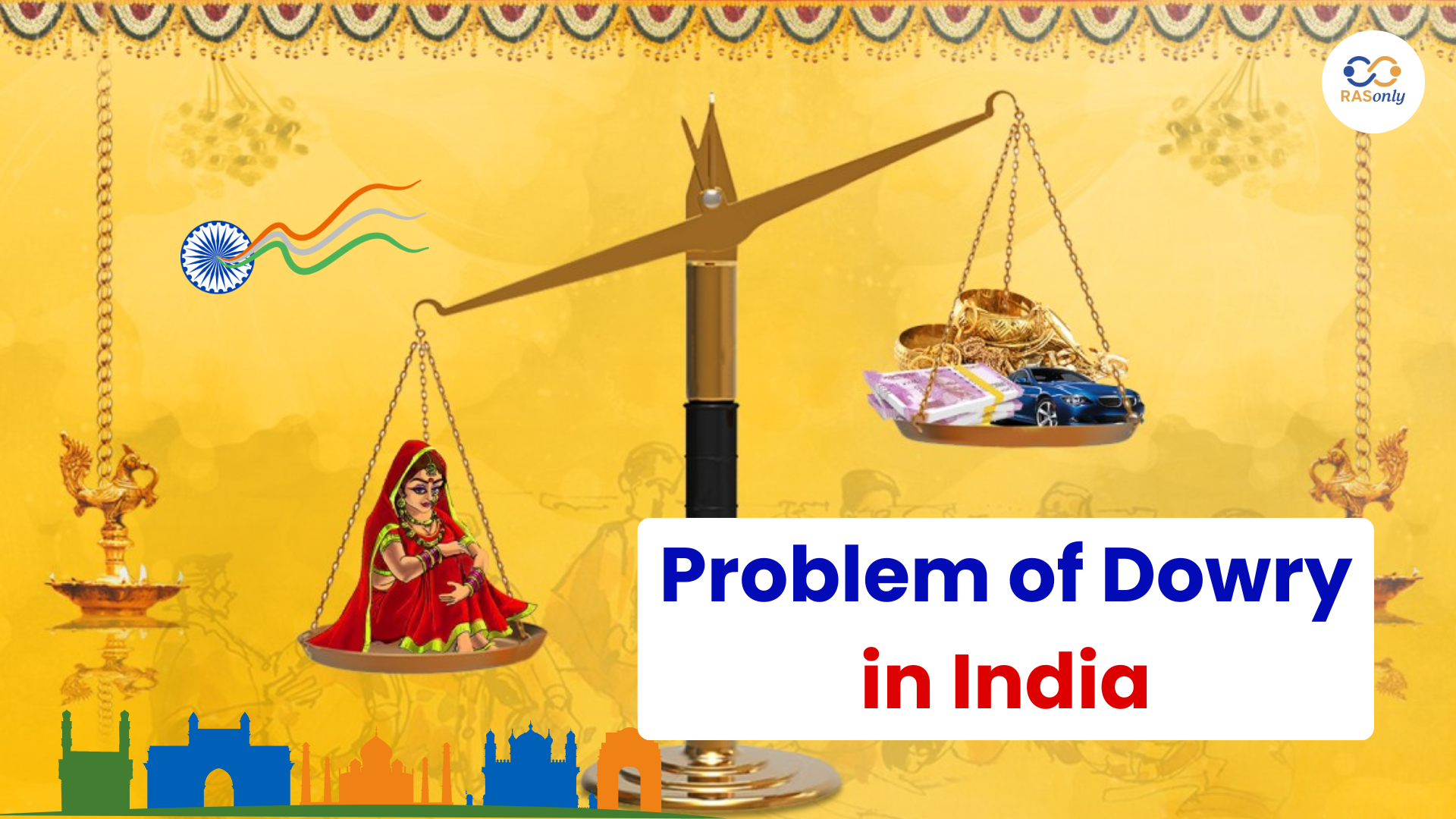
Dowry based violence is on the rise in India although legally it is banned, offering maximum security to women in the states of Uttar Pradesh, Tamil Nadu and Chandigarh. There are instances of harassment, physical assault, and even murder of women due to demands of dowries, which pose a failure on the part of the society as well as loopholes in the system when it comes to delivering justice.
Key Points for RAS Mains
What is Dowry?
- Dowry system is where the bride family is expected or ought to give cash, goods or property to the groom family before they can enter into marriage.
- It usually comes in the form of cash and jewellery, cars, household, or even land, and causes social and financial constraints on the family of the bride.
Legal definition (Dowry Prohibition act, 1961):
- Any property or valuable security thus offered or to be made, directly or indirectly:
- by one of the parties in a marriage to the other party in a marriage,
- or by the respective parents or any other individual.
- to a party or to any other individual,
- prior to marriage, druing or after marriage.”
Death Dowryunder Bharatiya Nyaya Sanhita (BNS) 2023
- Section 80, BNS - Dowry Death:
- The death of a woman due to burns, injuries, or any other unnatural cause under 7 years of marriage is assumed that of a dowry death provided that it occurred after cruelty or harassment due to dowry.
- Punishment: At least 7 years of incarceration on the limit of life.
- Cruelty (Section 86, BNS):
- Defined as:
- Any voluntary action that is likely to make the woman commit suicide or commit serious mental/physical injuries.
- Harassment because of illegal dowry demands or non-fulfillment of the affected demands.
- Defined as:
Causes of dowry deaths
- Cultural and Social Conditioning
- Dowry is still practised in the name of gifts.
- Patriarchal values consider women as an asset and their values are calculated in terms of dowry.
- There is social pressure where the families are coerced into accepting an impending risk that they may end up being met out with violence should they fail to comply.
- The problem contains rage, hatred, and brutalization.
- More than 7,000 cases of dowry death are registered every year (NCRB 20172022).
- 95% of the marriages in the country were of the dowry type in the villages (World Bank study, 1960 2008).
- Violence is underreported and obscures the extent of violence.
- Gender Discrimination
- Feminine women regarded as a source of drain on finances.
- The subordination is also strengthened by economic dependability and the dowry practices are justified.
- Economic pressures & consumerism
- With the growing desire to have fancy weddings, change of lifestyle and competition in the society, expectations on dowry increase.
- This enforces pressure and initiates abuse.
- Inadequate Law Enforcement
- Administrative investigation hold ups and prosecution delays.
- In 2022, 67% of the dowry deaths inquiry kept waiting over 6 months.
Court Cases in Regard to Dowry Deaths
- Sanjay Kumar Jain and ors v. State of Delhi (2011):
- SC condemned the practice of dowry as a curse and stressed on its eradication by putting it in rigour.
- K. Prema S. Rao against. Yadla Srinivasa Rao 2003:
- SC cautioned that stringent legislations remain useless unless enforced with tenacity.
- Satvir Singh v. Punjab (State of Punjab) 1998:
- HC referred to dowry as a social stigma and insisted on the change in society.
- S. Gopal Reddy Vs. State of Andhra Pradesh (1996):
- Has reaffirmed that it is punishable by law both to demand or to accept dowry.
Issues in Judicial and Legal Process
- Delayed Investigation:
- FIRs do not result in charge sheets in only about 64% of cases and the rest get stalled or closed as there is low evidence.
- Judicial Bottlenecks:
- Out of the pending cases, conviction is limited at 90% (~100 per year).
- Police-Judiciary Gaps:
- Cases are watered down in informal mediations. Chargesheets were slow to file in more than 70 % cases.
- Victim-Blaming & Underreporting:
- Due to fear of stigma, social pressure and lack of support, women are not able to seek justice.
The Way Forward: How to stop the Cycle of Dowry Violence
- 1. Women Economic empowerment
- Impose such laws as:
- Prohibition of Child Marriage Act (2006)
- Right to EducationAct (2009)
- Enhance the financial inclusion by ensuring:
- Beti Bachao Beti Padhao
- Sukanya Samriddhi Yojana
- National Skill Development Mission
- MUDRA Yojana
- Impose such laws as:
- 2. Tech Enabled Redressal of Grievances
- Introduce anonymous reporting systems (hot applications, WhatsApp lines).
- Make whistle blowers respond fast and protect their identities.
- 3. Police Reforms And Sensitization
- Police need to be trained in treating the issue of dowry harassing victims seriously rather than seeing it as a domestic issue.
- Rigid measures and filing of FIRs quickly to scare the offenders.
- 4. Survival Support Systems
- Put up counseling, legal and income maintenance shelters in all the dazzling.
- Abandoned women should be empowered by direct benefit transfers or directly releasing women into skills-based employment.
- 5. Fast-Track Courts
- Establish special courts to speedily conduct trials of cases of dowry death and cruelty.
- 6. Social Consciousness and Law Reform
- Carry out frequent campaigns on:
- Guys in schools and colleges.
- The families in high-incidence states.
- Incorporate dowry issues in the young NSS/NYKS programs.
Conclusion for RPSC
Dowry death is an act of crime not only against the law but also against humanity. Although there is legislation, efficiency relies on the transformation of the society. Real change will happen when dowry is demanded not as a source of prestige, but as a source of disgrace, when again women are not appreciated because of what they can accomplish, but as a person
FAQs for RPSC RAS
Post Category
- RAS Salary
- Result
- RAS Admit Card
- RAS Job
- RAS Cutoff
- Preparation Tips
- RAS Answer Key
- RAS Exam Analysis
- RAS Syllabus
- RAS Previous Year Papers
- RPSC RAS Exam Pattern
- RAS Interview
- RAS Mains Exam Date
- RAS Vacancy
- RAS Test Series
- RAS Best Books
- RAS Preparation Resources
- RAS Coaching Centre
- History
- Polity
- Geography
- Economics
- Science
- Art and Culture
- RPSC RAS Application Form
- RPSC RAS Notification
RASonly Interview Guidance Program

Mr. Ashok Jain
Ex-Chief Secretary Govt of Rajasthan
- IAS officer of the 1981 batch, Rajasthan cadre.
- Passionate about mentoring the next generation of RAS officers with real-world insights.
- Got retired in Dec 2017 from the post of Chief Secretary of the state of Rajasthan.

Mr. Guru Charan Rai
Ex-ASP / SP in Jaisalmer
- Guru Charan Rai, IPS (Retd), retired as Inspector General of Police (Security), Rajasthan, Jaipur in 2017.
- Served as ASP and SP in Jaisalmer, Nagaur, Sri Ganganagar, Sawai Madhopur, Dausa, Sikar, and Karauli.
- He also held key positions as DIGP and IGP in the Law and Order division.

Mr. Rakesh Verma
Ex-IAS Officer, B.Tech, MBA, and M.A. (Economics)
- IAS officer of the 1981 batch and retired in Chief Secretary Rank.
- Civil servant of high repute and vast experience.
- Has been teaching UPSC CSE subjects for the last six years.
Related Post
Daily Current Affairs for RAS Exam Preparation 2026

Rajasthan Pavilion Shines at Stone Mart Jaipur 2026
February 07, 2026
Rajasthan Achieves 3,000 MW Under PM-KUSUM Scheme
February 07, 2026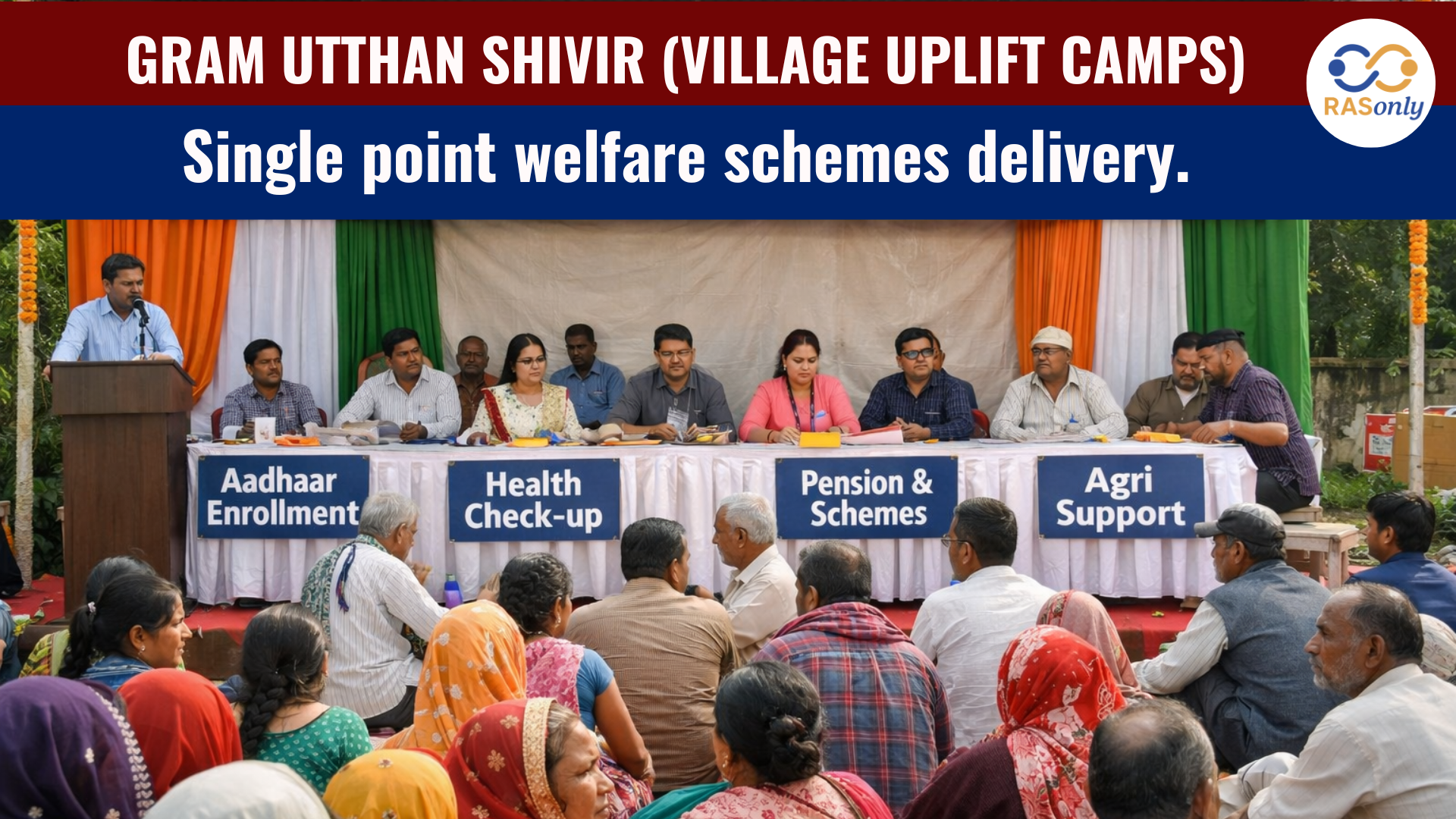
Gram Utthan Shivirs Strengthen Rural Governance in Rajasthan
February 07, 2026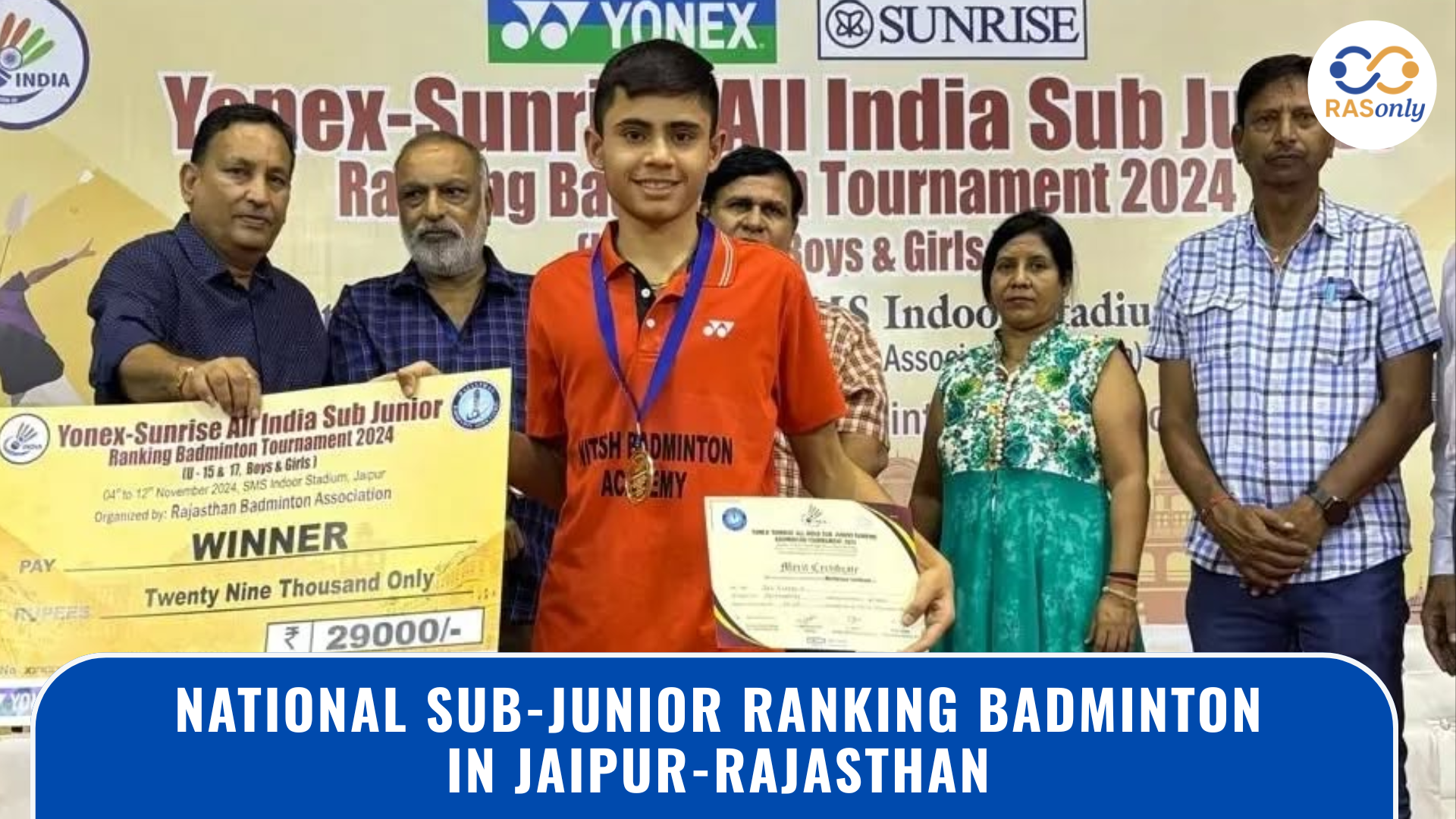
Jaipur Badminton: 72-Minute U-15 Final Creates Record
February 06, 2026👉🏻 Register Today to Join Classes! 👍🏻
- Team RASOnly -
🎯 Benefits of RASOnly Coaching:
- ✅ 1:1 Mentorship with RAS Officers
- ✅ Experienced and Expert Faculty
- ✅ Free Library Access
- ✅ Daily Minimum 4 Hours Must
- ✅ Comprehensive Study Material
- ✅ Regular Tests & Performance Analysis
- ✅ Personalized Guidance & Doubt Solving
- ✅ Online & Offline Class Options
- ✅ Affordable Fees with Quality Education
Key Highlights:
- 👉🏻 3-Day Refund Policy
- 👉🏻 New Batch Starting from 04 August
- 👉🏻 Registration Amount: Only ₹1000




